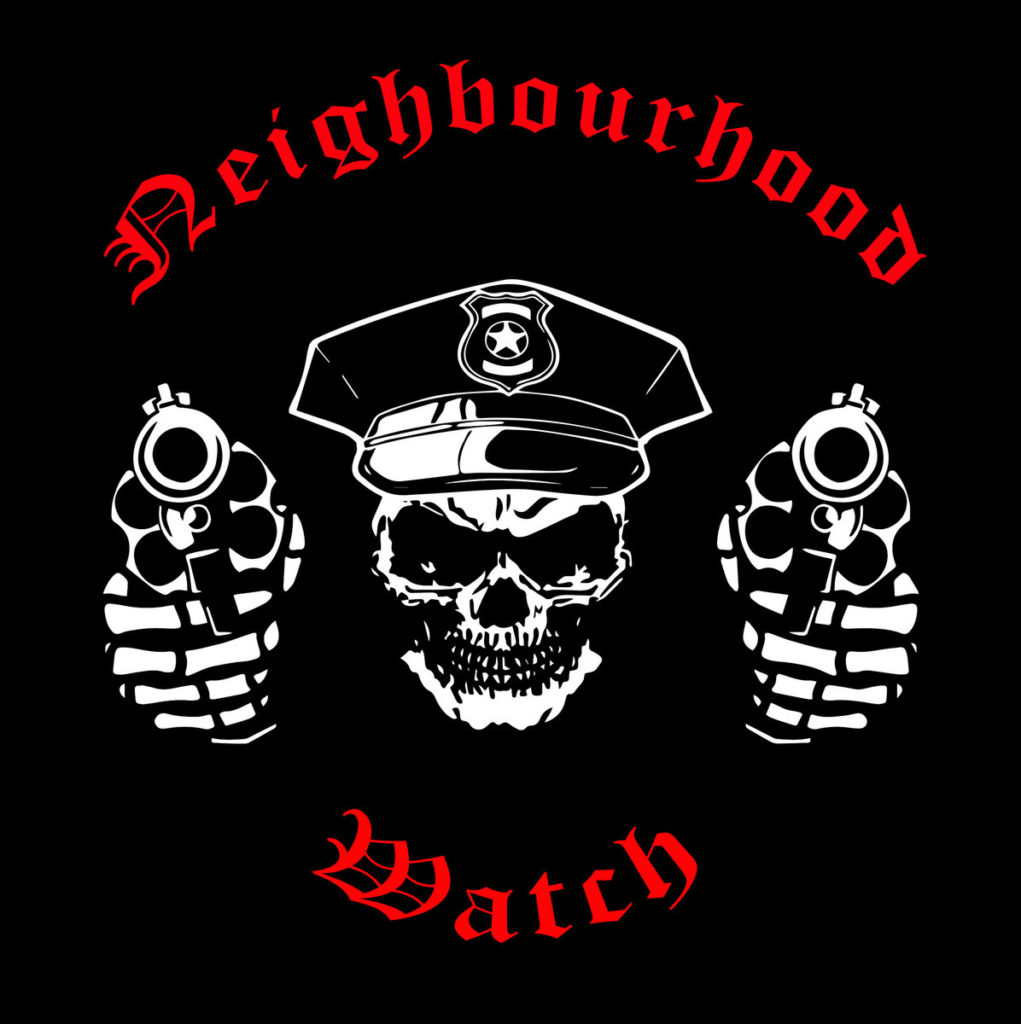With the release of their self-titled album, Neighbourhood Watch proves punk rock isn’t just a kid’s game.
Matt Carter
 Hardcore punk has rarely been about breaking new ground. If you go back and look through the music’s 40 year history, you’ll find only a handful of bands able or interested in broadening the path of this aggressive punk rock offshoot. It seems like the majority of angry and energized musicians who choose to follow in the footsteps of the genre’s giants are more interested in release, than revision. There’s nothing wrong with that.
Hardcore punk has rarely been about breaking new ground. If you go back and look through the music’s 40 year history, you’ll find only a handful of bands able or interested in broadening the path of this aggressive punk rock offshoot. It seems like the majority of angry and energized musicians who choose to follow in the footsteps of the genre’s giants are more interested in release, than revision. There’s nothing wrong with that.
For hardcore bands bound by the vicious circle of record-release-tour-repeat, it’s best to establish an interpretation of the music – or some sort of identity – right out of the gates. Otherwise, it can be a pretty tough go trying to establish an audience in a sea of copycats happily repeating the same structures over and over again while only ever looking to write the best mid-song breakdown. But there are exceptions to everything, and time is a wonderful gift.
Neighbourhood Watch broke up a few years after the release of their 1987 EP ‘Death at the Hands of Time’, a record that has since cemented the band’s place in Canadian hardcore music history. In the thirty plus years since, there have been a few short lived incarnations of the group but nothing of any real substance until 2015 when the original lineup got back together for an anniversary tour. With a handful of lineup changes, they have since remained active, slowly working away on a new album. That new album has finally arrived. The best part? It was totally worth the wait.
Neighbourhood Watch’s self-titled album is a major accomplishment on several levels. The fact that it even happened is something worth celebrating. And that founding members Ciaron Lewis and Grant Forsythe are still full of piss and vinegar, that too is something to be happy about. But let’s talk about the music because that’s the real story.
I started this long winded review by stating my belief in this music’s self imposed limitations and it’s inability to evolve past a few time honoured templates. I really believe that, and I’ve been a fan of this music for decades. But that theory goes out the window when a band goes on hiatus for the better part of 25 years; people play in different bands, get interested in different music and essentially become completely different people. It’s important to remember this when we talk about Neighbourhood Watch in the present tense. Had they not gone their separate ways shortly before “punk broke” in the early 90s, perhaps we they would have joined the masses in trying to recreate the original spark of infectious energy that brought them together in the first place, edging ever closer to homogeneity. Or maybe they would have followed a completely different path. We’ll never know. And really, who cares? They’ve been rightfully credited as inspiration for the dozens and dozens of local punk bands that came after them, and even though their earlier material predates most of their audience today (and possibly even a few current members of the band), their lasting impact on a regional level is rivaled by few. Again, time is a wonderful gift.
The Neighbourhood Watch of 2020 bears little resemblance to the Neighbourhood Watch of 1987, and it wouldn’t be fair to pit one against the other when discussing the band’s new album. I’m not saying there are no similarities between the two, but these are essentially two very different bands bonded by history and the unmistakable presence of the group’s longserving vocalist, Grant Forsythe, a true apocalyptic poet. His penchant for exploring society’s underbelly and revealing all its dirty secrets, lies and shame takes centre stage on this latest recording. It’s almost as if Forsythe spent the last 30 years preparing for this moment, distilling his societal anger into tiny, well-focused vignettes of 120 seconds or less. The album opens with the brilliant grindhouse love story Crime & Cocaine, before delivering scathing exposés on social media culture, our diverse concepts of success, international conflict, you name it. There’s some seriously dark lyrical themes on this album.
Musically, this latest incarnation of Neighbourhood Watch sounds incredibly strong. While still on top of their punk rock game, the band pull a variety of new sonic influences into the fold. There’s a touch of reggae on Face The Nation, a definite nod to classic-era thrash metal on Phobic, and a healthy serving of lead guitar riffs throughout most of this recording. And you can hear touches of every seminal hardcore band throughout the album’s 14 tracks.
The resulting album is a high achievement and the best possible outcome for a band that, up until now, existed mainly as nostalgia for many. Still vital, still exciting and still among the upper tier of heavy music makers challenging the entire notion of what “east coast music” can be, Neighbourhood Watch are as essential today as they were 30 some years ago. That’s a crown few will ever wear.
Neighbourhood Watch | FACEBOOK | BANDCAMP | MERCH
Cover photo: uncredited/Facebook




